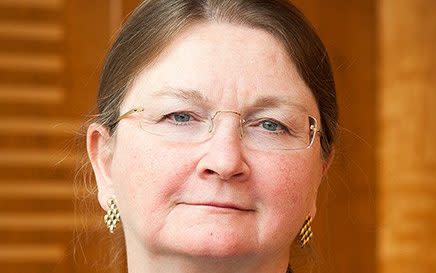War on vice-Chancellor pay is revenge for universities’ stance on Brexit, higher education leaders say

The war on vice-Chancellor pay is revenge for universities’ stance on Brexit, higher education leaders have claimed.
Almost nine out of ten (88 per cent) of vice-Chancellors believe that criticism levelled against them is politically motivated rather than arising from “substantive” issues, according to a survey of institution heads.
In a series of interviews, vice-Chancellors explained why they felt they were under attack, which included “political revenge for universities’ strong opposition to Brexit”.
A report published by PA Consulting, which conducts an annual survey of higher education leaders, said that vice-Chancellors were “dismayed” and “somewhat bemused” by the “rapid upsurge of negative sentiment towards universities” during the second half of 2017.
The report follows widespread criticism of vice-Chancellor pay packets and promises by ministers to crack down on the "upwards rachet" of salaries.
Any member of a university’s senior leadership team with salaries over £150,000 will have to justify their salary to the new regulator, the Office for Students (OFS), or face a fine.

According to the report, one vice-Chancellor complained: “We have gone, almost in weeks, from being national treasures to problems to be made to go away.”
Another compared the current hostility towards university leaders to the backlash against bankers following the 2008 economic crash.
The report described how most vice-Chancellors felt that negative sentiments were down to “a conflation of political developments, notably Brexit and the General Election, but some perceived deeper and more worrying forces at work.”
The report said: “In conversations, vice-chancellors noted that few of these criticisms were new, and offered a range of possible explanations for their being raised at this time.
“These included political revenge for universities’ strong opposition to Brexit, come-uppance for the perceived immunity of universities to ten years of public sector austerity, and a populist battle between the main political parties for the ‘youth vote’.
“Others suggested that more draconian regulatory proposals reflected ministerial frustration that market reforms had failed to stimulate price competition and innovations from the established sector.”

Three fifths (61 per cent) of respondents said that the problems cited by critics were of the government’s own making and for them to resolve.
The majority (86 per cent ) felt that the onus was on sector leaders to propose responses to the criticisms, with many acknowledging that the response from the sector so far had been misjudged and ineffective.
Earlier this week, a body which scrutinises Bath University voted for the immediate departure of its vice-Chancellor, who is the highest paid in the country.
Professor Dame Glynis Breakwell, who earns £468,000, announced her retirement last month after facing repeated calls to resign from her own staff. She is due to step down at the end of the summer term, after which she will remain at the university for another six months on full pay during a sabbatical.
Previously, Oxford University’s vice-Chancellor has criticised "mendacious" politicians for accusing institutions of using rising fees to subsidise pay.
She also accused politicians of damaging the UK university sector by making "spurious" links between the increase in fees and the rise in vice chancellor pay - which has gone up every year of the last five. She went on to suggest that vice-Chancellors were modestly paid compared to bankers and footballers.

 Yahoo News
Yahoo News 